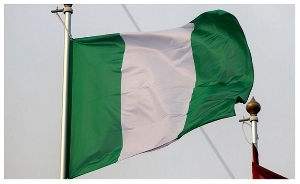1. Life and its necessities
Once you are born, the only certainty is death. Suffering, affliction and contraction of diseases are caused by humans except natural phenomena like earthquakes, lightning, etc. It is the application of the five senses of seeing, smelling, tasting, hearing and feeling to observe analyse and act in response to the behaviour of the environment to sustain our lives. The three most important elements essential for the sustenance of life are air, water and food. We breathe clean air in and out of our lungs to keep our heart functioning to maintain life. Air is available in all natural spaces and for free. Water is the means by which food is cooked for eating, eaten food is dissolved for digestion and body waste is discharged. Water is the medium by which food nutrients are carried to all parts of plant, animal and human organism. The quality of the water determines how well those functions will be carried out. Food on the other hand, is consumed to nourish the body by providing energy and growth. Food may be obtained in the wild or grown.
As at now, Ghana does not seem to have serious problems with air despite the fact that industrial pollution is rife. Food can also be imported from countries with excess to supplement local production. However, in the case of water, the scenario is different and the situation is alarming. It is therefore my duty as a citizen to bring to the fore my fears about the water situation in Ghana. I hope someone will know and everyone will act.
2. Water Sources
Water is available on this earth in various forms or states. It is the only substance that occurs naturally in three different forms: liquid, solid (ice) and gas (water vapour). It is called the universal solvent because it can dissolve many substances. The use to which water can be put depends on the type of water, its quality and quantity and its spatial and temporal distribution. In general, water is needed for public water supply (domestic, such as for drinking, cooking, bathing, washing clothes, cooking utensils, cars, floors, watering lawns etc, industrial, commercial and institutional); irrigation; hydroelectric power generation; recreation (swimming, boating); navigation; wildlife conservation; livestock and flood control.
3. Water Quantity and Quality
As the rain falls from the sky, the water gets polluted by absorbing gases (acid rain). Some of it also collects dust and other forms of minute living organisms (bacteria, viruses, protozoa and helminths) from surfaces of leaves and intercepting objects. Yet still rain that falls onto the ground runs off and washes anything in its path thus polluting the water. Any water available in its natural state is raw water. Thus water in the seas, oceans, lakes, ponds, rivers; underground springs and rainwater are all raw waters and must be treated to make it suitable for use.
The principal methods used in water treatment are: Aeration (a process of exchange between gases in the atmosphere and dissolved gases in the raw water), Coagulation/Flocculation (addition of coagulant to effectively entangle or absorb the suspended colloidal particles to become heavy enough to settle), Sedimentation (the settling at the bottom of particles of larger and heavier suspended matter in the water), Filtration (a process of solid-liquid separation where the solids within the liquid passing through porous media, is retained whilst the liquid passes through), Disinfection (the destruction of all disease causing organisms), Corrosion Protection (adjustment of pH) and Desalination (the treatment of seawater or brackish water). One would think that these methods will always yield the desired quality of water for all the intended purposes. Unfortunately, this is not the case and is therefore a source of worry to the informed.
4. Pollution of our Water Bodies
As stated above, even natural water gets polluted as rain or runoff, but under the same natural conditions with all things being equal, self cleansing takes place. Unfortunately, the natural water (which we shall term raw water) is polluted mostly by the wilful activities of humans. Generally, human activities cause imbalance of the ecosystem. These activities which are mainly for obtaining the third essential of life (food) and the other resources to make life more comfortable, include farming along water courses, deforestation (timber, charcoal burning, wood for construction and sale), soil winning for building construction (roads, bridges, fields, buildings), mining, discharge of harmful chemicals in water bodies, fishing and discharge of waste (solid and liquid).
Civilisations grew along water bodies for ease of obtaining water. As cities grew and pollution increased, the knowledge of science also increased so as to manage the resulting pollution caused to the environment to the detriment of humans. However, scientific knowledge so far cannot resolve all the harmful problems caused by humans. For example, how can science prevent the use of nuclear weapons? In addition to inadequate scientific knowledge are economic and financial constraints which are key factors in developing countries like Ghana. What is right? What is wrong? Nothing is absolutely right or wrong. Everything is relative, relative to the person but more so to the society. For the survival of all members, society is well organised in a hierarchical manner with laws rules and regulations to order the behaviour of every member. Bodies are set up to monitor compliance and punishment is expected to be meted out through laid down procedures to offenders. Since these appointed bodies cannot be everywhere, members of society are expected to assist in monitoring and report breaches to the relevant authorities for action and not to exact punishment by themselves. They cannot take the law into their own hands and mete out their own prescribed justice.
5. Stakeholders in the Water Sector
There are so many bodies, individuals or group of individuals who are interested in or responsible for safeguarding the water resources of the country. The Environmental Protection Agency (EPA) and the Water Resources Commission (WRC) are directly responsible for ensuring that the quality of our water resources is maintained or improved and not polluted. The Ghana Standards Authority (GSA) is also responsible for setting standards for services to be provided, among which is water. However, it is not known whether the GSA has standards for raw water quality. River basins or watersheds define the water resources naturally available for each locality within the basin. Water transfer from one basin to another can be done artificially but is expensive. Flora and fauna are equally important for the balance of the ecosystem within a given watershed. In Ghana these are provided and protected by the Forestry Services Division (FSD) and Wildlife Division (WD).
Rivers flow over land and water bodies collect on low lying land. These lands are owned by individuals, families or chiefs. Even though constitutionally, the Government can acquire any parcel of land for the public benefit of the citizenry and pay appropriate compensation, it has not got the means to do so. It will also be virtually impossible for Ghana to declare all land vested in the state. Therefore the understanding and cooperation of land owners is necessary for the protection of the environment. However, land use laws can be passed and enforced to ensure the beneficial and sustainable use of land. Beneficiaries of the water resources of Ghana are all living beings within the boundaries of Ghana whether they are indigenes or foreigners. However, it is pertinent to point out that the concern for adequate quantity and quality of our water resources should be more worrying to the indigenes than the foreigners. This is so because clearly, when the situation becomes bad and unbearable, the foreigners have a place to go to-their homes, but Ghanaians have no other home. The Ghana Water Company Limited (GWCL) is responsible for providing potable water for all urban dwellings in Ghana.
Unfortunately, the company is unable to adequately meet this mandate for numerous reasons, some of which are obvious to many Ghanaians including governments whose responsibility it is to provide for the citizenry. Despite these challenges faced by the GWCL, the raw material used to produce potable water is being polluted with abundant impunity through illegal artisanal gold mining within the river basins and beds. If urgent attention is not taken to curtail and abate the current water pollution from illegal mining activities a major environmental disaster could arise as mercury and other heavy metals are discharged into the river bodies.
There are two grave concerns to consider. These are the cost of treatment which is transferred to the consumer and the quality of the end product which is consumed by the user. The Public Utilities Regulatory Commission (PURC) uses all the parameters of the cost of producing potable water to determine the tariff. As the treatment costs rise the tariff should also rise correspondingly. Is it therefore justifiable for consumers to bear higher tariffs as a result of these avoidable cost increases in treating the water? Raw water pollution is avoidable. Once customers have the means to pay, higher tariffs may not be a concern.
However, the more important worry is the inability of the GWCL to remove heavy metals by its current water treatment processes. These heavy metals in the raw water used to produce potable water are therefore consumed by all who use GWCL water. People think that they are safe if they use bottled water. If the original source of the bottled water is from sources within Ghana, then consumers need to think twice, after all the processing of bottled water is an industrial activity which can sometimes fail. How does the consumer know and verify the quality of the packaged water he or she consumes? Moreover, those who drink bottled or filtered water should know that they are gradually losing their immunity to resist diseases. What can be more dangerous than this? 6. Ghana’s Self Destruction In Ghana, we have identified that a major cause of pollution of our raw water sources is illegal mining. The illegal mining is being carried out largely by Ghanaians. However, in recent times foreigners, particularly Chinese (also Nigerians) have come on the scene and are keenly competing with and even overtaking the local people in this illegal business. Their illegal mining activities are reported in the media. Available: http://business.myjoyonline.com/pages/news/201203/82862.php. It can be safely concluded that Ghanaians hold several conferences and consultations to identify and find solutions to the same problems they have done many times past. These “talk shows” are unbecoming and are a drain on the national budget. Let us talk less and act more.
Why are punitive measures not being taken against these illegal miners whose activities pollute our water bodies? In a recent survey it was sad to note that the Ghana government, the security services and the judiciary are well aware of the activities of these illegal miners. Opinion leaders such as chiefs are also aware and it is even alleged that some of the chiefs are involved, directly or indirectly, in illegal mining called “galamsey” in Ghanaian parlance. It was further alleged that when the Chinese are arrested, their Ambassador pleads for their release in order to maintain a good relationship between Ghana and China since China is a large financier of development projects in Ghana. Are these allegations true? Is it justified for China to take Ghanaian wealth to China by destroying its environment and only return part of it to Ghana as assistance to quieten governments in the name of good relations?
The West has taken our resources for a pittance and is it now the turn of China to damage our environment in an attempt to take away our resources? Some of the illegal miners are said to use heavy earth moving equipment for their uncontrolled operations. They operate in forest reserves, wildlife reserves, river banks, river beds and human settlements. Their operations, destroy years of cultivated and preserved forests, change the habitat of wildlife, remove the vegetative cover along river banks causing serious erosion, and pollute the water bodies causing high turbidity levels and introducing heavy metals into the water.
No matter where the uncontrolled mining takes place, the runoff from rainfall transports the adverse effects to impact over vast areas downstream. Note that your location is a downstream of another location. It is also alleged that when the illegal miners are sued in court, the judges do not order the equipment and tools to be seized but only impose relatively small fines. If the illegal miner makes about GH¢1,000.00 a day and is fined GH¢300.00 when caught, what is the motivation for him or her to stop illegal mining? Some reports also indicate that illegal mining cases sent to the Law Courts have not been decided on for periods over a year. What motivates the environmentally conscious citizen to lawfully pursue illegal mining cases? Who are the hidden sponsors of the galamsey business? It is obvious that the illegal miners have no means of acquiring the kinds of costly equipment used.
How did so many Chinese come to Ghana? What criteria does the Ghana Immigration Service use to allow these foreigners into the country? Is the coming of these foreigners to the benefit of the individual Immigration Officers or the country as a whole or both? Why do these sponsors prefer money to their lives and the lives of present and future Ghanaians? Why do Ghanaians place so many premiums on money and wealth? We tend to adore and honour the rich without questioning the source of that wealth. What are our social, moral and spiritual values? Is a good name not better than wealth? Have we in our deep and sombre solitary mood questioned the purpose of our individual existence on earth?
When measures are normally taken to bring sanity into the society, some people who claim to be human rights advocates jump into the fray and muddy the waters. Take for example, the sale of sachet water. Nobody is against the sale of any product. However, the resulting pollution of the environment is unacceptable and if the producer has no solution to the pollution caused by the use of his product, the product must be banned. Period! The polluter must pay for the pollution he or she has caused.
The survival of people on this planet is the number one human right and therefore any other acclaimed right is subservient to this right. The right to survival on this planet is premised on a well balanced ecosystem and any activity, conscious or unconscious, that adversely impacts on the environment to cause an imbalance to the ecosystem must be stopped.
Take the other example of selling in the streets. Some people argue that it is an innovative way of livelihood and that banning it will cause unemployment. They are quick to add that the resulting unemployed will become armed robbers. There is no statistic to prove this. Where were these street sellers in the years past? The only right argument the human rights advocates advance is the lack of or delay in enforcing the laws. The first sellers who appeared in the streets should have been stopped but not to wait for the problem to become hydra headed.
Currently, the Police MTTU is struggling to contain the operations of “Okada”. Another means of transport is the “motor king” more common in the north. The motor king is also being used to transport human beings instead of goods only. Decisive action should be taken now before the situation gets out of control. A stitch in time saves nine. Expansions of our roads cost huge sums of money because we have to pay unnecessary compensations to encroachers we have turned a blind eye to and allowed them to settle. When will our law enforcement agencies do the right thing at the right time? Their apparent selective enforcement of the law is also another problem. 7. Conclusion If Ghanaians (including politicians, judges, and police) allow foreigners to destroy our environment, then Ghanaians are self-destructing, by looking on unconcerned, walking away or turning the other way. Let Ghanaians console themselves that the only certainty after birth is death and can result from HIV/AIDS, malaria or the consumption of heavy metals. The consumption of significant doses of heavy metals over long periods of time is certain to result in death and nobody should deceive themselves that they are exempt. Have the government, politicians, law enforcement agencies, statutory regulatory bodies and judges read this piece? What response do they have for the good citizens of Ghana including the illegal miners and their financiers and power brokers?
The Writer Ing. Matthew Adombire is the Chief Manager in charge of Operations of the Ghana Urban Water Limited with over 30 years working experience as a Water Engineer. He is also the author of the book entitled “Water Supply for the Consumer-A Concise Practical Guide”.
Opinions of Tuesday, 3 July 2012
Columnist: Adombire, Matthew
Self Destruction Of Ghanaians Through Water Pollution
Entertainment

Blackmail Saga: Court remands Showboy, case adjourned
Opinions









